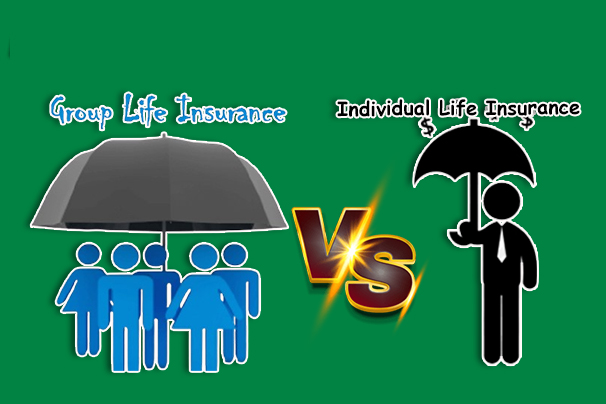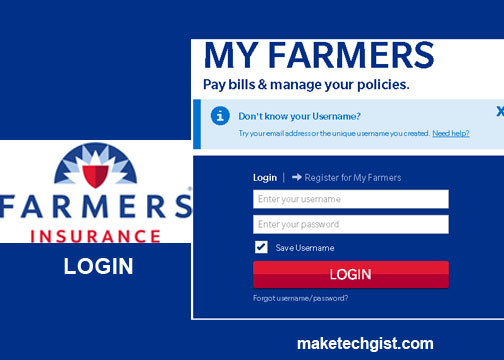Purchasing life insurance is definitely an important life decision. It enables you to ensure the financial stability of your family in the event of your passing. Before selecting a life insurance policy, it’s crucial to understand the differences between individual vs. group life insurance policies.

Individual life insurance is appropriate for single people, but group life insurance is best for families with several members. To assist you in selecting the appropriate coverage, let’s examine the key distinctions between individual vs. group life insurance.
Group Life Insurance vs. Individual Life Insurance
Policies for group life insurance are typically less expensive than those for individual life insurance. This is due to the fact that group life insurance policies frequently offer a death benefit and prohibit the accumulation of cash value in addition to the death benefit.
Individual life insurance policies come with cash value options and a death benefit and are permanent. The policyholder typically provides a lump sum or dependents pension benefits, like a savings account or monthly income, and maintains separate life insurance policies. However, because every kind of life insurance policy has different features and benefits, it is crucial to thoroughly compare them before making a choice.
What Is Group Life Insurance?
An employer may choose to purchase group life insurance for its staff members. This is an agreement between the employer and the insurance provider whereby the employer provides the insurer with regular premium payments in exchange for an assured sum that will be paid to the employee’s designated beneficiary in the event of the provider’s death.
Advantages of Group Life Insurance
The following are the key benefits of purchasing group life insurance via your workplace.
Easy access
Obtaining coverage at work can be a pretty easy process. HR departments are usually available to address your inquiries, and the paperwork is frequently included in your hiring documents.
Cost
Basic coverage obtained through employment is typically provided for free or at a reduced cost to the employee, making it a simple approach to obtain a minimal level of coverage.
Acceptance
People with serious medical conditions can still qualify for most basic life insurance plans through work because they are guaranteed. If you wish to purchase additional life insurance, you may be required to furnish health-related information.
Disadvantages of Group Life Insurance
Even though group life insurance is a benefit of your job, it might not be enough for you. The drawbacks are as follows:
- You frequently lose coverage when you quit your job. The only exception is if your policy is “portable,” which implies that even after you quit your job, you can keep purchasing group life insurance at your own expense.
- A group life insurance policy’s death benefit is typically less than an individual policy’s.
- Unlike permanent life insurance, most group life insurance policies have no cash value, so you cannot borrow against them.
What Is Individual Life Insurance?
A person can purchase individual life insurance as a type of policy for themselves. In accordance with the terms of their contract, the policyholder pays the insurance company on a regular basis in exchange for a sum assured that will be distributed to the nominee in the event that the insured person passes away.
Advantages of Individual Life Insurance
This policy follows you everywhere. You have portability when you buy an individual life insurance policy. Your policy remains in effect as long as you pay your premiums on time, whether you decide to quit your job, form a rock band, or live off the grid. You can choose the term length and level of coverage you require.
Term life insurance policies have a maximum policy duration of one year and maximum death benefits ranging from $50,000 to millions. It’s the kind of adaptability that might enable you to find the ideal policy. Your prices are fixed. Your premiums will typically be lower the younger and healthier you are. Additionally, your rate will not change if you purchase a level-premium term life insurance policy; it will stay the same for the duration of the policy.
Disadvantages of Individual Life Insurance
Most likely, you are paying for it. You are probably responsible for paying the premiums if you are the policyholder. Your lifestyle and health will determine the rate you pay. Insurance premiums for older, unhealthy smokers will probably be higher than those for a slightly younger, healthier nonsmoker. It is possible that you will not be granted approval. Risk analysis is a step in the underwriting process that insurers take. They might not give you a policy if something in your past raises red flags and poses an excessive amount of risk.
Is Group Life Insurance Better Than Individual Life Insurance?
People are always curious about which is superior when discussing differences between things, such as those between individual and group life insurance. Both group and individual policies have clear distinctions, but neither is inherently superior to the other.
The following are some distinctions between group and individual life insurance:
- Individual insurance is based on your needs, whereas group insurance is based on a multiple of your salary.
- The group owns your group insurance, but you own individual life insurance.
- Since group insurance is linked to the organization, it cannot be taken with you if you quit your job. Your individual life insurance remains in effect wherever you work.
- Individual life insurance policies guarantee your premiums; group life insurance does not.
It’s also possible to purchase both individual and group life insurance policies. Furthermore, to avoid paying higher premiums, you must make sure that the total coverage does not surpass your actual insurance needs.





